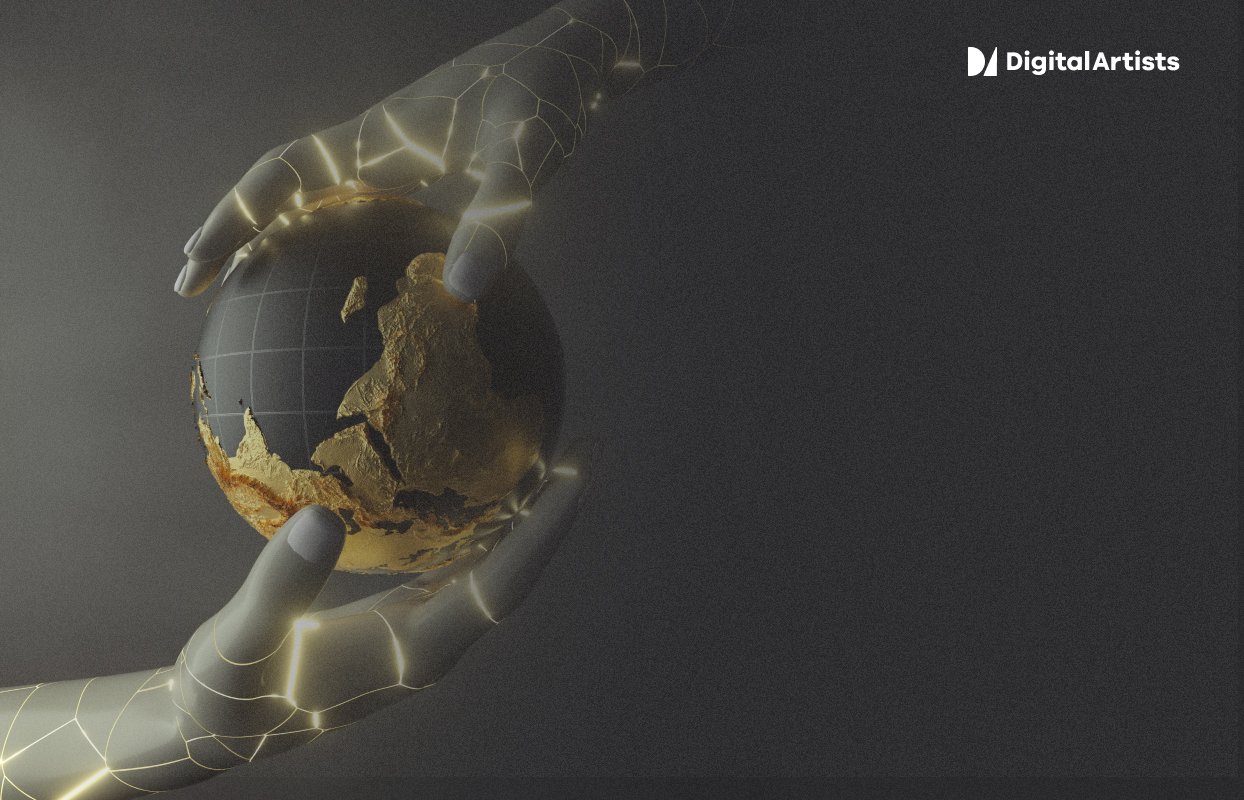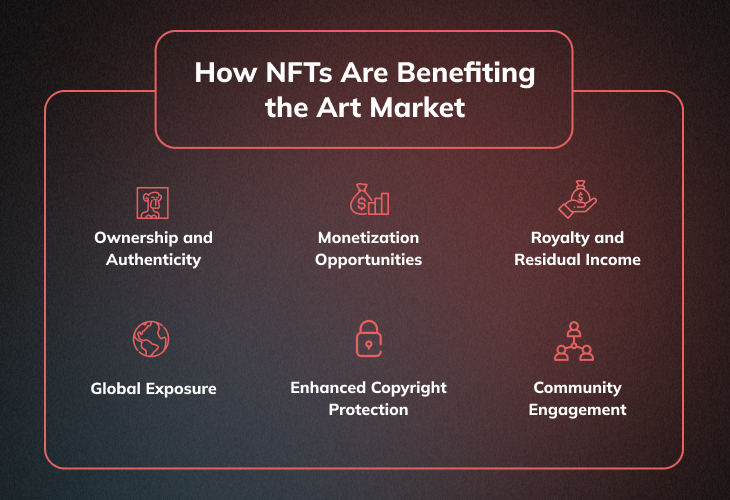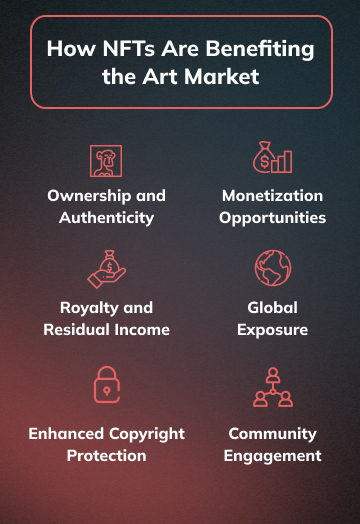


Ever since the first NFT named ‘Quantum’ hit the blockchain on 3rd May 2014, Non Fungible Tokens (NFTs) have exploded onto the scene and have now become a household name amongst collectors and enthusiasts worldwide. The mechanism behind NFTs is an advanced technology that is generally not understood by the general public, but it is this very technology that will totally revitalize the way we live in the not-too-distant future.
Before we venture into how NFT’s will change the world we live in today, it is important to understand the technology behind them. Through a perpetual on-chain verification process on the blockchain, smart contracts are created. These smart contracts give irrefutable evidence of asset ownership. Every contact is traceable on the blockchain and it remains there forever without the possibility of being altered.
Connecting the blockchain with the Web3 ecosystem and then linking them to the bricks and mortar assets of the physical world, will be revolutionary and believe it or not, the first building blocks have already been set through Blockchain Oracles. Once the blockchain is connected to traditional finance databases through the oracles, the possibilities become infinite.
Paper invoices that we have used for centuries will quickly become obsolete. The NFT technology will have the ability to not only store every financial transaction, it will also be able to track and trace the complete history of any given contract and that will be practically impossible to edit or forge. As you can imagine, the benefits of using the NFT technology will completely revolutionize how we make transactions in both the physical and digital domains. Let’s take a detailed look into how NFTs will change the world forever.
Unless you’ve been living under a rock, you would have already heard about various digital artwork collections such as Cyber Punks or the Bored Ape Yacht Club. The outlook for NFT artwork has been growing exponentially year-on-year and reached almost 514 million US dollars in sales just in 2021 alone!
NFTs help create a financial value to artists, something that has been unvalued in recent times because it’s so widely available on social media and other platforms. Now the artist can take ownership of their artwork for the very first time. They now have the ability to set how much their artwork is worth and crucially, how many original copies they wish to have. In the art world, notoriety is key. Collectors will pay a lot more money for a rare, original copy than they would for a reproduction. Artwork that utilizes the NFT technology would completely eradicate fake copies, which in turn would drive the value up.


Music used as NFTs is a very recent partnership in the ecosystem. Depending on the way music content is accessed by the listener, Smart NFT’s have been designed to handle almost any format. For instance, an audio Smart NFT could include a .mp3 file containing the lyrics to a song or it could bear a personal message from the artist.
Smart NFTs are well-positioned to transform the future of music forever. NFTs offer the music creator full ownership of their artistry, taking away the need for agents. The musician can then decide where their work is distributed, such as radio stations, Spotify and YouTube, without a middleman taking a cut of the profits. Additionally, the musician could create a limited amount of NFTs for their piece of art, as a result, should any owner of the NFT decide to sell it, the musician will receive royalties from every sale and resale afterwards as the NFT metadata will contain a record of ownership on the blockchain.
The very first NFT music album was launched in March, 2022 by the Kings Of Leon, named ‘When you see yourself’ and made almost 2 million US dollars in sales. Twelve of the NFTs contained “golden tickets” that gave the lucky holder front row seats to their upcoming concert. And that is the magic of NFTs – the ability to reward any holder at any time.
Gaming was the first industry to use NFTs outside of the digital artwork collections. The first NFT game that hit the blockchain in 2015 was named Spells of Genesis, a point-and-shoot arcade game where the players combine cards to defeat their enemies. The game (still going strong today) allows users to earn an in-game cryptocurrency named ‘Bitcrystals’ as they play. NFTs will not only be utilized as user-owned peer-to-peer games, soon users will be able to purchase in-store merchandise such as weapons, avatars and skins with them. One such game is ‘Axie Infinity.’ With approximately 3 million daily players and sales hitting almost 250 million US dollars in 2021 alone, it is not hard to envisage other powerhouse games such as ‘Fortnite’ and ‘Minecraft’ following suit in the near future.
Epic Games have already announced a partnership with Gala Games to create NFT blockchain-based AAA games. Ubisoft reported back in December last year that they are taking a step forward into gaming NFTs and will create certain in-game items that will hold value outside of the game itself. Nintendo and GameStop also joined the party recently and announced they will be creating NFT marketplaces.
Probably the biggest challenge in the supply chain management industry is vindicating product authenticity. Any company worth their salt knows that their brand name is their most valuable asset. Consumers will follow particular brand items such as Gucci as an example and will pay large sums of money for authentic items. NFTs will be able to mimic any physical item and log it on the Blockchain. There the consumer will have the items full product history, including previous sale history, time of creation etc. Counterfeits will be a distant memory of the past.
There are a few companies already starting to place physical products on the Blockchain in the form of NFTs for logistical reasons. The main objective behind it using the Blockchain is so the NFT/package can be traced on every step of its destination. It should greatly decrease the number of shipments lost in transit.
Imagine a company such as UPS that sends billions of packages every year and loses thousands of them along the way, including yours. With NFT technology, UPS would be able to create an NFT token for each package, every step of the way to its final destination. In theory, no parcel should ever be lost again. The same principle applies to many shipping companies, no matter what the parcel consists of.
Finance is perhaps the biggest sector that NFTs will revolutionize on the biggest scale. The potential is to tokenize real-world monetary assets and connect them to decentralized finance (DeFi) markets. Once the technology is available to connect real-world monetary assets to the Blockchain, they’ll be a significant overhaul to every financial service and payment system in the world.
Financial data has always been very difficult to connect across international borders due to compliance, confidentiality and GDPR protocols. Everything from processing times to system integration need human intervention, which in some cases take months to be processed. Leveraging the notion of tokenization, all types of financial information, such as invoices, can get their very own unique identity in the form of an NFT. Once on the Blockchain, the data is secure and can now be transferable, using a smart contract within seconds.
Smart contracts are pre-arranged agreements that characterize how different assets interact with one another on the Blockchain. In a nutshell, they’ll be created to prove the ownership of obligations to the vendor, and ownership of benefits to the client.
Digital identity is something that has been discussed for quite some time, and whether you’re a fan of it or not, one thing is for certain – soon each and everyone of us will have some form of digital identity in the foreseeable future. Decentralized identity is an ideology that proposes that only the individual can access their data. Third-party service providers would no longer be required and would quickly become obsolete. To be more specific, a decentralized digital identity is a decentralized Blockchain system that aims to revamp the current centralized identity management configuration by using Blockchain technology.
A decentralized identity would give the user full control over their personal data. The ID could be stored either on a decentralized wallet or an in-app plugin for a browser. The user would be the sole owner to these wallets and gain access to them via cryptographic keys – as you do with the traditional Crypto DeFi wallets of today. Once the ID is stored on the wallet, the user would have full control over whom they decide to share it with, such as schools, banks and Government entities.
The decentralized identity has many benefits, especially in these times whereas data protection is paramount. Passports, Driving licenses, Birth certificates and many more identity documents will benefit from decentralized identity. The days where you lose or damage a document and have to pay a reissuing fee will be a distant memory.
The Metaverse is a virtual world that fuses digital reality and physical elements. A place where anything is possible, a place where people can interact, play games or even make money without leaving your front room!
The term ‘Metaverse’ derives from a 1992 novel named Snow Crash. In the novel, Neal Stephenson depicts a dystopian computer generated universe and people within the Metaverse walk around with avatars, just like the one today!
The metaverse gives its users an infinite amount of online space to interact with one another. Within this space, the possibilities are endless. You could potentially set up your very own alien world and it is the NFTs that will verify that you are the actual owner of that particular cyber space. At this moment in time, NFTs are used primarily for digital art, however, in the metaverse, anything is possible. You could own virtual real estate, virtual pets, or even offer virtual services and get paid as a result. It’s forecast that one day the metaverse will be powered via Web 3.0 and online reality will merge with the society of the real world, very much like the movie ‘Ready Player One.’ People will live their everyday lives within the virtual world. For now, the concept seems a little far-fetched but as technology becomes more advanced, who’s to say what’s down the line?!
Various corporations such as Meta (formally known as Facebook) are building up to the next generation of the internet. For example, Meta is currently working on a project called ‘Horizon Workrooms’ essentially 3D workspaces accessed with augmented virtual reality headsets and Microsoft is following suit with their ‘Teams’ functionality. Some of the biggest companies in the world are investing heavily into the Metaverse and NFTs are the bricks and mortar of these immersive worlds. Applications such as Decentraland and The Sandbox are selling digital land in their own Metaverse in forms of NFTs. Imagine owning the Las Vegas of the metaverse, prior to any casinos being built? Imagine owning your very own tropical island? The possibilities in the Metaverse are truly endless.
Web3 is the next generation of the internet. It’s an evolution of technology where everything we have spoken about in this article will interlink and the Blockchain will be the engine behind it. Artificial Intelligence (A.I.) will come to the fore and provide users with more relevant data at a much faster speed. Applications and services will be decentralized through NFTs, taking away a central authority – essentially, giving the power back to the people, for the people.
Metaworlds will flourish on Web3. As we touched on earlier, it might be possible to connect the metaverse with the physical world and the benefits could be astounding. Imagine you need to see a doctor urgently, all you would need to do is put on your headset and visit them within the Metaverse. If you live in a different country to your family and friends, again pop your headset on and have an evening meal with them.
As we see, NFTs will play a critical role in the next steps of our evolution. They will revolutionize the ownership and inter-changing of not only digital assets, but also the physical items in the real world. Many people believe that NFTs are just a gimmick, but the actual truth is that they will change the world for the better in so many ways.